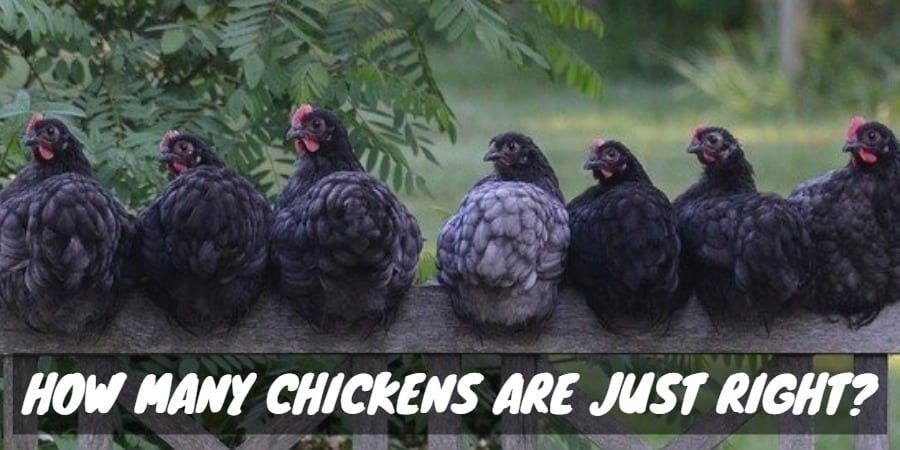The classic chatter from chickens is one of the most widely recognized sounds in the world, but what does it all mean? The constant clucking, cackling, and crowing is a form of language like most other noises, and while it can all seem a bit disorganized, it’s absolutely not meaningless. Like nearly every other form of life on the planet, chickens have their own unique form of communication and with a little patience, you’ll be able to understand their language as easily as they do.
How Do Chickens Say … ?
How do chickens say hello? Scientists have discovered that chickens have as many as thirty distinct vocabulary “clucks” that can be used to communicate any variety of things, from “I’m in danger” to “look at the egg I just laid!”, but the most commonly heard communication is, unsurprisingly, a greeting. You may have received a friendly hello from your own chickens already, a cheerful sound often described as sounding like buh-dup and accompanied by a close examination or tilting the head from side to side.
[amazon bestseller=”chicken vitamins”]
Chicken Vocabulary: 8 Important Clucks to Understand Your Chicken

Hello is not the only thing a chicken knows how to say, and there are a variety of vocabulary terms that they use. These manifest as:
- Crowing: One of the most iconic sounds of small-town farms and suburban flocks alike, the crow of a rooster is instantly recognizable for what it usually is — announcing his presence as the ruler of his own little kingdom. Roosters start to crow as soon as they become sexually mature, and while they are most famous for their early morning crows, they may crow as a territorial signal at any given point throughout the day.
- Cackling: We know when it happens, but we don’t actually know why. A hen will cackle after laying an egg, and will sometimes be joined by the hens around her, but whether the cackle is a proud, congratulatory sound or simply a signal of relief to the other hens that she’s done with the task is still unknown!
- Clucking: Like cackling, clucking is a familiar sounds that still holds the most mystery. While most folks agree that the clucking exhibited by both hens and roosters throughout the day is some form of conversation, we don’t know enough about chicken communication to know exactly what they’re saying.
- “Perp-perping”: The next time you feed a mixed flock of chickens and chicks, keep an ear out for the sound that’s best described as perp-perping. Often exchanged between a mother hen and her chick, this sound is believed to be a signal to younger or weaker birds that food is nearby, and that it is safe to eat. Roosters will often make the same noise to alert the hens in their flock when they’ve found a good source of food and are eager to share.
- Yelling: There’s really no other way to describe the sound chickens make when they’re afraid or in danger other than yelling. If a chicken is under immediate threat from a predator, or even when it has only sighted something that it believes to be a threat, it will give out a loud burst of noise to warn all the other chickens within listening range to scatter until the coast is clear.
- Growling: Chickens, like cats and dogs, use growling as a way of warning other chickens or other animals to stay away. Brooding hens will often growl if someone pokes around their nest for too long, and, if not immediately obeyed, growling can often be followed by a peck or some other quick, sharp attack!
- Squawking: Less desperate than a yell, a squawk from a chicken serves mostly the same purpose as a squawk from a human. It signals surprise and mild alarm, but often without the same level of fear that would prompt a yell. If you take a chicken by surprise, startle it, or just give it a little scare, the chicken is likely to squawk, but instead of scattering for cover, you may observe some of your other chickens coming over to check to see what the problem is.
- Other Noises: Because chickens are such communicative animals, the sounds listed above are not the only sounds you should expect to hear. Chickens of all ages will often make little crooning noises as they go about their daily business, or hum when they are happy and content. The crooning is believed to be a sort of “all clear” signal, especially in young chicks, as they let the mother hens know that they’re doing just fine, and exploring the world around them.
Roosters, on the other hand, can make all sorts of aggressive noises when they’re gearing up for a confrontation, and noises of distress or pain are common in chickens of all ages — espeically when they’re in a situation that makes them uncomfortable. Keep an ear out for pleasure trills, too — high, chirping noises that signal that your chicken is pretty pleased with life right now!
[amazon bestseller=”chicken mealworms”]
Take some time to hang out with your chickens, listen to their communication, and in no time at all, you’ll be able to pick out the flow of conversation, get a feel for the personalities of each of your chickens, and get a few clues into what they’re discussing!




